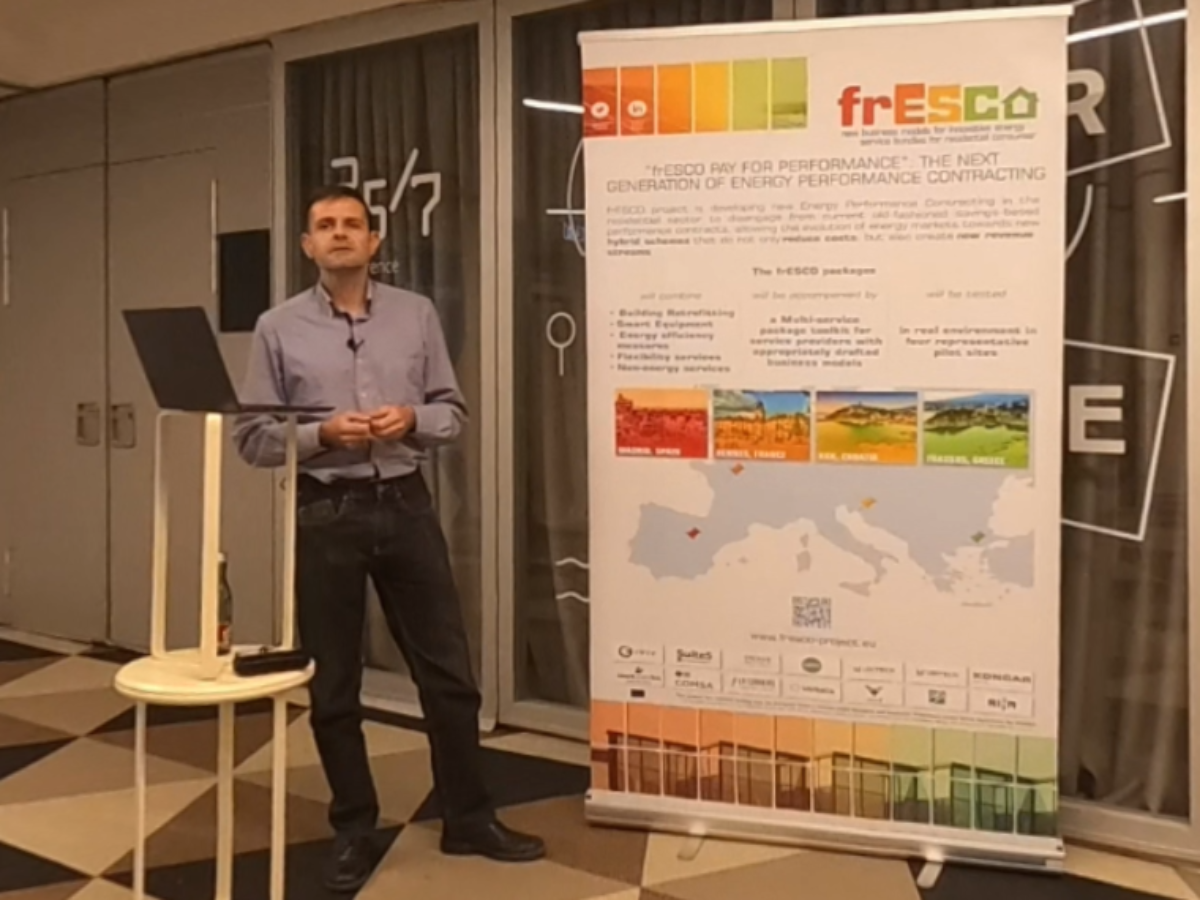CARTIF – the Interview
Behind every project there is a team of people who work together for a common purpose. Knowing a project does not only mean understanding the results achieved or the activities carried out, but also knowing who is behind these activities, what motivates them and what were the life paths, choices and personal goals that led them to be part of a research team today. For this reason we want to introduce you today one of the frESCO partners, Víctor Iván Serna González from CARTIF, through an interview dedicated to him.

CARTIF
Would you briefly describe yourself and your career?
My name is Víctor Iván Serna Gonzalez, a Telecommunications Engineer since 2007 from the University of Valladolid (Spain) and with a M.Sc.Eng in Signal and Communications Theory in 2013 from the University of Vigo (Spain).
I have been working in CARTIF since 2007 as Project Manager and R&D engineer participating in several National and European R&D projects related to the use of ICT technologies and data analysis applied to energy efficiency management, in particular: IT platforms for integrating different subsystems in smart homes and hospitals, developing of e-Services in Smart Cities, renewable energy systems integration in buildings and Smart grids, ICT solutions for energy efficiency (middleware, Building Management Systems and monitor and control systems) and development of tools for district energy efficient retrofitting design.
In 2019 I was a Visiting Scientist at the Joint Research Centre in Ispra and I collaborated in the ELISE Energy Pilot project, aiming at supporting energy policies with the help of geo-located data based on the INSPIRE Directive.
What does CARTIF organization mainly deal with outside the frESCO project?
CARTIF is a horizontal, private and non-profit Research Institution, whose main mission is providing innovative solutions to the industry to enhance their processes, systems and products, improving their competitiveness and creating new business opportunities.
CARTIF is a multidisciplinary centre that works in multiple knowledge fields focused to many economic sectors: energy, food, industry, construction and infrastructures, health and environment, addressing research lines oriented to the main societal challenges, as industry 4.0, smart grids, smart cities, energy efficiency, cultural heritage, quality of life, circular economy, natural resources and biotechnology.
CARTIF has an analytical testing laboratory the offers analysis services to the centre and to other companies by means of a wide offer that includes 3D digitalization, biomass characterization, food biotechnology and material nanotechnology.
Which is your role in frESCO?
On one hand CARTIF is actively participating in the definition of the new energy services and associated business models, particularly conducting the activities aimed at assessing the feasibility and viability of the latter through modelling and simulation techniques.
On the other hand CARTIF is defining and developing one of the modules of the frESCO overall SW solution: “Personalized Energy Analytics and Human-Centric Automation tool for residential buildings”. This tool will be supported by machine learning algorithms in order to guarantee personalised energy management in compliance with user comforts conditions.
How important is in your opinion to define a human-centric approach to achieve a more efficient energy management in buildings? Could you please describe the idea behind this in frESCO?
The final aim of the solution to be developed by CARTIF inside frESCO project is the increment of the energy efficiency. However, this objective must not compromise the comfort conditions of the user. Furthermore, the solution must take into account humans and their social context and enhance the usability of the solution, so that it is truly useful to the users. This is what we mean by human-centric. In order to take into account the context of the user, all the information monitored by the sensors will be included in the algorithms in order to understand what surrounds the user at any moment, as well as predictive information that will anticipate what will happen in the future.
So, the final idea is to create a tool beneficial to the users, easy to manage, that uses as much information as possible and that generates economic savings by maximising user comfort.
Could you please describe what you mean by “smart readiness certification features”? Why these are going to be investigated within the frESCO project?
Nowadays, the concern about smart buildings is increasing, as they allow performing energy-efficient solutions, as well as increasing energy flexibility and reducing costs. The most popular smart building certification is the Smart Readiness Indicator (SRI), which is a voluntary European scheme useful for rating the smart readiness of buildings. Evaluating and considering SRI in order to choose the best solutions is one of the frESCO project objectives.
What are the main challenges you face in this project and how do you overcome these challenges?
The main challenge faced by CARTIF in this project is to create a solution that really adapts to any type of building and environment. The demonstrators in this project are very disparate, with different systems and offering heterogeneous information from building to building, so taking into account all the details is not trivial.
Another challenge both for the tool to be developed and for the simulation of the new business models, is to properly analyse each market considered in the project (Spain, Greece, France and Croatia), detecting their particularities and taking them into account.
What do you enjoy the most about working in an international Project Consortium such as frESCO?
Certainly one of the most enjoyable aspects of participating in this consortium is working with experts from different countries collaborating and learning together during the development of the project. It is very interesting to analyse different social, cultural, economic and regulatory contexts, increasing the knowledge of energy issues not only in our own country but also in other countries, learning from their singularities and improving our own capacities to offer more open and effective solutions.





